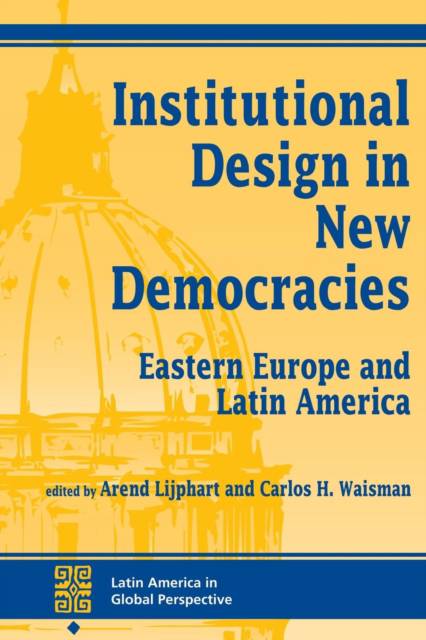
- Afhalen na 1 uur in een winkel met voorraad
- Gratis thuislevering in België vanaf € 30
- Ruim aanbod met 7 miljoen producten
- Afhalen na 1 uur in een winkel met voorraad
- Gratis thuislevering in België vanaf € 30
- Ruim aanbod met 7 miljoen producten
Zoeken
Institutional Design In New Democracies
Eastern Europe And Latin America
Arend Lijphart, Carlos Waisman
€ 102,45
+ 204 punten
Uitvoering
Omschrijving
Countries throughout Latin America and Central and Eastern Europe are moving from semi-closed to open economies and from authoritarian to democratic political systems. Despite important differences between the regions, these transitions involve similar tasks: the establishment of governmental institutions and electoral systems conducive to legitimation of the new and fragile democracies and expansion of the institutional infrastructure of a market economy.This volume looks at both regions, focusing on the relationship between the tasks of institutional design and the outcomes of the process of economic and political liberalization. In particular, the contributors emphasize the design of institutions to serve a market economy, the design of electoral laws, and the design of executive-legislative relations. Each chapter discusses the legacy of the pre-existing authoritarian regime; the range of preferences among various strategic actors (the government, state bureaucracies, opposition parties, and interest groups) with regard to the pace and mix of reforms; and the consequences of final choices for the institutionalization of effective economies and the process of democratization.
Specificaties
Betrokkenen
- Auteur(s):
- Uitgeverij:
Inhoud
- Aantal bladzijden:
- 288
- Taal:
- Engels
- Reeks:
Eigenschappen
- Productcode (EAN):
- 9780813321097
- Verschijningsdatum:
- 23/08/1996
- Uitvoering:
- Paperback
- Formaat:
- Trade paperback (VS)
- Afmetingen:
- 156 mm x 234 mm
- Gewicht:
- 449 g

Alleen bij Standaard Boekhandel
+ 204 punten op je klantenkaart van Standaard Boekhandel
Beoordelingen
We publiceren alleen reviews die voldoen aan de voorwaarden voor reviews. Bekijk onze voorwaarden voor reviews.











